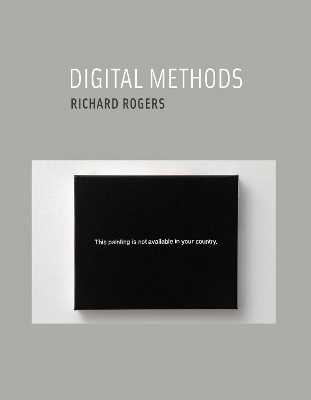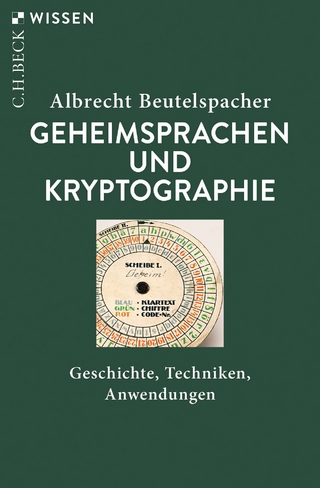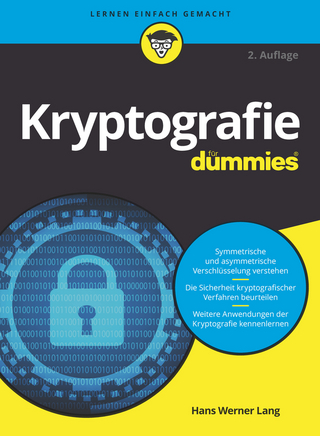
Digital Methods
Seiten
2013
MIT Press (Verlag)
978-0-262-01883-8 (ISBN)
MIT Press (Verlag)
978-0-262-01883-8 (ISBN)
- Keine Verlagsinformationen verfügbar
- Artikel merken
A proposal to repurpose Web-native techniques for use in social and cultural scholarly research.
In Digital Methods, Richard Rogers proposes a methodological outlook for social and cultural scholarly research on the Web that seeks to move Internet research beyond the study of online culture. It is not a toolkit for Internet research, or operating instructions for a software package; it deals with broader questions. How can we study social media to learn something about society rather than about social media use? Rogers proposes repurposing Web-native techniques for research into cultural change and societal conditions. We can learn to reapply such "methods of the medium" as crawling and crowd sourcing, PageRank and similar algorithms, tag clouds and other visualizations; we can learn how they handle hits, likes, tags, date stamps, and other Web-native objects. By "thinking along" with devices and the objects they handle, digital research methods can follow the evolving methods of the medium.
Rogers uses this new methodological outlook to examine such topics as the findings of inquiries into 9/11 search results, the recognition of climate change skeptics by climate-change-related Web sites, and the censorship of the Iranian Web. With Digital Methods, Rogers introduces a new vision and method for Internet research and at the same time applies them to the Web's objects of study, from tiny particles (hyperlinks) to large masses (social media).
In Digital Methods, Richard Rogers proposes a methodological outlook for social and cultural scholarly research on the Web that seeks to move Internet research beyond the study of online culture. It is not a toolkit for Internet research, or operating instructions for a software package; it deals with broader questions. How can we study social media to learn something about society rather than about social media use? Rogers proposes repurposing Web-native techniques for research into cultural change and societal conditions. We can learn to reapply such "methods of the medium" as crawling and crowd sourcing, PageRank and similar algorithms, tag clouds and other visualizations; we can learn how they handle hits, likes, tags, date stamps, and other Web-native objects. By "thinking along" with devices and the objects they handle, digital research methods can follow the evolving methods of the medium.
Rogers uses this new methodological outlook to examine such topics as the findings of inquiries into 9/11 search results, the recognition of climate change skeptics by climate-change-related Web sites, and the censorship of the Iranian Web. With Digital Methods, Rogers introduces a new vision and method for Internet research and at the same time applies them to the Web's objects of study, from tiny particles (hyperlinks) to large masses (social media).
Richard Rogers is University Professor of New Media and Digital Culture at the University of Amsterdam and the author of Information Politics on the Web (MIT Press).
| Reihe/Serie | The MIT Press |
|---|---|
| Zusatzinfo | 56 figures; 56 Illustrations |
| Verlagsort | Cambridge, Mass. |
| Sprache | englisch |
| Maße | 178 x 229 mm |
| Gewicht | 794 g |
| Themenwelt | Informatik ► Theorie / Studium ► Kryptologie |
| Mathematik / Informatik ► Informatik ► Web / Internet | |
| ISBN-10 | 0-262-01883-7 / 0262018837 |
| ISBN-13 | 978-0-262-01883-8 / 9780262018838 |
| Zustand | Neuware |
| Haben Sie eine Frage zum Produkt? |
Mehr entdecken
aus dem Bereich
aus dem Bereich
Geschichte, Techniken, Anwendungen
Buch | Softcover (2022)
C.H.Beck (Verlag)
9,95 €
Die faszinierende Geschichte der Verschlüsselung
Buch | Softcover (2022)
Springer (Verlag)
34,99 €


